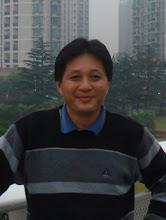Michael Fullan is Professor Emeritus of the Ontario Institute for Studies in Education of the University of Toronto. Recognized as a worldwide authority on educational reform, Michael is engaged in training, consulting, and evaluating change projects around the world and his books have been published in many languages.
Michael Fullan is currently Special Advisor to the Premier and Minister of Education in Ontario. His book, Leading in a Culture of Change was awarded the 2002 Book of the Year Award by the National Staff Development Council and Breakthrough (with Peter Hill and Carmel Crévola) won the 2006 Book of the Year Award from the American Association of Colleges for Teacher Education.
- If people cannot find meaning in any reform it cannot have an impact. Learning is about 'meaning making' and it requires a radically new way of approaching learning - one that guides the individual mind through the process of many minds working together.
- Existing strategies will not get us to where we want to go. We cannot simply imitate principals of successful 'moving ' schools we must change the existing conditions in each school so that it is normal and possible for all people to move forward.
- Although short-term gains can be achieved by standards based reform it is deadly if the conclusion is that schools should do more of the same. The learning community model will fail if teachers and principals do not have the capacity to act effectively. With numbers of schools struggling, there is a need to fast track phase one of change by pushing hard on standards , providing quality support material and examples of successful practice, and providing focussed professional development. As results begin it is then necessary to shift to 'capacity building', to encourage local ownership. This cannot be a simple linear process and phase one can be seen as pre- capacity building. The flow is from tighter to looser forms of control, from external to internal commitment, from control to guidance. A process that applies process at all levels.
- The 'learning organisation/community' is more than a cliché. This phrase is one of the most superficially understood terms in the change business. Learning organisations are required because improvement is a function of learning to do the right thing in the setting where you work. Ultimately no amount of outside motivation can specify the best solutions for a particular situation.
It is about 'organisational knowledge creation'.- People must work together to figure out what is needed to achieve what is worthwhile.
- You cannot get internal commitment and ingenuity from outside - expertise lies within.
- The only problems worth solving are the ones that exist in each and every organisation.
- Change is forever. Problems don't stay solved, so you have to learn to do the right thing over and over again.
Professional learning communities constantly worry about what is worthwhile and how to get there. They continually convert tacit knowledge into explicit shared ideas; they are 'energy and knowledge creators'. - We need to consider the collective good. The 'market forces' model that underpinned the educational changes of the 90s may have been efficient, generating competition and choice but it misses two fundamental matters. Firstly school systems and democracy are closely connected. Education has a strong moral component - education should enable people to work together to achieve higher purposes that serve both the individual and the collective good. Secondly we can only move forward by learning from each other's successes and failures. Schools have to share their ideas for the benefit of the students of all schools.
Transformational change cannot be achieved:- if teachers identify with only their own classrooms - they must be concerned with the success of other teachers of the school.
- if principals identify only with their own schools - they must be concerned with the success of all other schools.
- if school districts identify only with their own areas only. And so on.
- We have to learn to live with change. This means we have to take change both less and more seriously at the same time. Less, because most change is superficial and more because it is important to work through change until we get shared meaning and improvement. The best defence against the relentless pace of change, Fullan believes, is to build professional learning communities that are good at sorting out the worthwhile from the non worthwhile and to look for support and healing when ill conceived or random changes takes its toll.






6 komen:
sori faris, aku baca tajuknye jer.... fenin la ana punye kefala!
p/s: 21st ni tak jadi ke kl, pg td doktor call, tangguh pd 5 Feb.
Allah tidak akan mengubah nasib seseorang itu,kecuali dia sendiri cuba mengubahkannya.besar maksud yg tersirat dlm ayat ini......mengubah bukan saja nasib, tapi..sikap ,tingkahlaku,cara hidup dan segala-galanya kearah kebaikan.
kita lihat bangsa yahudi yg ambil makna ayat ini,lihat apa yg mereka perolehi,bangsa jepun,korea yg bangkit maju diera ini.
Cop,
Tak apa kalau kau tak baca habis. Aku hanya nak berkongsi ilmu kepada yang memerlukan.
binzain,
Betul kata2 ayat tu. Qada dan Qadar adalah ketentuan Allah. Tetapi manusia digalakkan berdoa dan berusaha, jangan hanya berserah sahaja tanpa sebarang usaha. Orang Islam kita tidak memanfaatkan ayat2 Al-Quran tetapi kaum dan agama lain mengkajinya secara mendalam.
faris, kalau ko nak siusup baca...ko kena masukkan enteri yg mengisahkan ttg poligami ke, pompuan ke, baru dia baca.panjang berjela enteri ko gerenti dia baca...
binzain,
Nak kata betul cakap kau tu, tak tahulah aku. Kena tanya si Ucop sendirilah.
Cop,
Benar atau tidak, hanya kau yang boleh menjawabnya.
Post a Comment